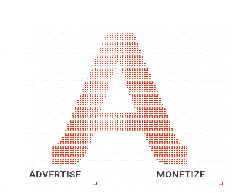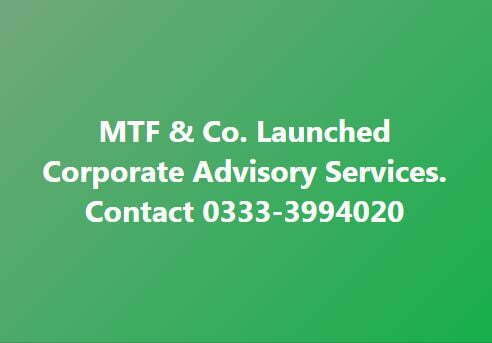Day 6: Employment Income and Benefits
Introduction:
Employment income and benefits are significant components of personal income tax. Understanding how different types of employment income and benefits are taxed is essential for accurate tax reporting and maximizing your take-home pay. Today, we will explore the various types of employment income, fringe benefits, allowances, and the taxation implications for each.
Types of Employment Income
1. Salary and Wages:
Salary and wages are the most common forms of employment income. They include payments received for work performed, such as:
- Base Salary: The regular compensation paid to an employee for their work.
- Overtime Pay: Additional pay for hours worked beyond the standard workweek.
- Bonuses: Extra payments made to employees based on performance or achieving specific targets.
- Commissions: Payments made to employees based on sales or other performance metrics.
2. Leave Payments:
Leave payments include amounts paid to employees while they are on leave. Common types of leave payments include:
- Annual Leave: Paid time off for vacation or holidays.
- Sick Leave: Paid time off for illness or injury.
- Long Service Leave: Paid time off for long-term employees, typically granted after a certain number of years of service.
- Parental Leave: Paid time off for employees who are new parents.
3. Termination Payments:
Termination payments are made to employees when their employment ends. These payments may include:
- Redundancy Payments: Compensation for employees who are made redundant.
- Unused Leave Payments: Payments for accrued but unused annual or long service leave.
- Retirement Payments: Lump sum payments made to employees upon retirement.
Fringe Benefits
1. Overview of Fringe Benefits:
Fringe benefits are non-cash benefits provided to employees by their employers. These benefits are subject to Fringe Benefits Tax (FBT), which is paid by the employer.
2. Common Types of Fringe Benefits:
Some common types of fringe benefits include:
- Company Cars: The private use of a company-provided vehicle.
- Housing: Employer-provided housing or accommodation.
- Health Insurance: Employer-paid health insurance premiums.
- Education: Employer-paid education expenses for employees or their dependents.
- Entertainment: Employer-paid entertainment expenses, such as meals and event tickets.
3. Taxation of Fringe Benefits:
Fringe benefits are subject to FBT, which is calculated based on the taxable value of the benefits provided. The FBT rate is 47% for the 2023-2024 financial year. Employers must report the taxable value of fringe benefits on employees’ payment summaries if the total exceeds $2,000.
Allowances
1. Overview of Allowances:
Allowances are additional payments made to employees to cover specific expenses related to their employment. These payments are included in the employee’s assessable income and are subject to income tax.
2. Common Types of Allowances:
Some common types of allowances include:
- Travel Allowance: Payments to cover the cost of work-related travel.
- Meal Allowance: Payments to cover the cost of meals during work-related travel or overtime work.
- Clothing Allowance: Payments to cover the cost of uniforms or protective clothing.
- Tool Allowance: Payments to cover the cost of tools and equipment required for work.
- Living Away From Home Allowance (LAFHA): Payments to cover additional costs for employees living away from their usual place of residence for work.
3. Taxation of Allowances:
Allowances are included in the employee’s assessable income and are subject to income tax. Employees may be able to claim deductions for expenses incurred that are directly related to the allowance.
Salary Sacrifice Arrangements
1. Overview of Salary Sacrifice:
Salary sacrifice arrangements allow employees to voluntarily forgo part of their salary or wages in exchange for non-cash benefits provided by their employer. Common salary sacrifice benefits include superannuation contributions, cars, and laptops.
2. Tax Implications:
Salary sacrifice arrangements can provide tax advantages for employees by reducing their taxable income. The benefits received through salary sacrifice are typically taxed under FBT, rather than income tax, which may result in tax savings.
Key Takeaways
1. Understanding Employment Income and Benefits:
- Familiarize yourself with the different types of employment income, fringe benefits, and allowances.
- Recognize the tax implications of each type of income and benefit.
2. Compliance and Reporting:
- Ensure accurate reporting of employment income and benefits on your tax return.
- Keep records of any allowances and fringe benefits received and the associated expenses.
3. Seeking Professional Advice:
- Consider consulting a tax professional for personalized advice on managing your employment income and benefits.
- Stay informed about changes in tax laws and regulations that may affect your tax obligations.
Conclusion
Understanding the various types of employment income and benefits is essential for managing your tax obligations and maximizing your take-home pay. By familiarizing yourself with salary and wages, leave payments, fringe benefits, allowances, and salary sacrifice arrangements, you can make informed decisions and ensure compliance with Australian tax laws. Stay tuned for Day 7, where we will delve into tax credits and deductions.
Accurate bookkeeping is crucial for effective tax management. MTF & Co. offers comprehensive bookkeeping services to ensure that your financial records are meticulously maintained, making tax filing and compliance hassle-free. With expert assistance, you can focus on growing your business while we handle the numbers.
Our services include:
- Transaction Recording: Precise recording of all financial transactions.
- Financial Reporting: Regular reports to keep you informed of your financial health.
- Tax Preparation: Organized records for smooth tax filing.
- Compliance: Ensuring adherence to tax laws and regulations.
Reach out to us at MTF & Co. to learn more about how our bookkeeping services can support your financial needs. Contact us at mtfco@onewebonehub.com.













